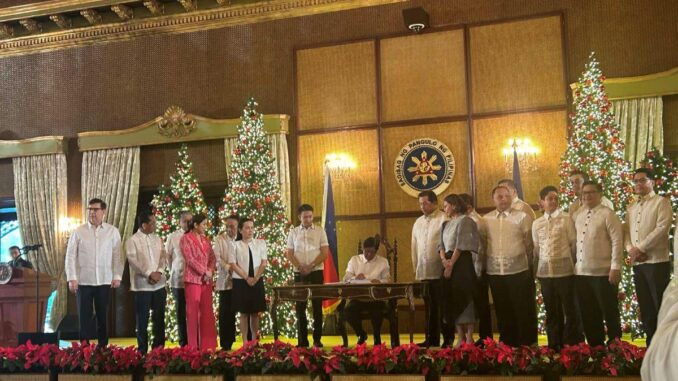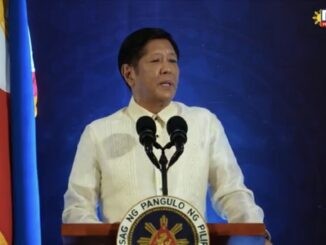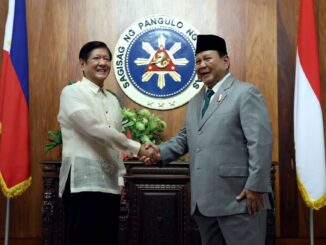
President Ferdinand ”Bongbong” Marcos Jr. said Monday that he vetoed more P194 billion worth of line items that are not consistent with his administration’s priorities.
Aside from that, some special provisions were also subjected to conditional implementation, meaning they would either require the issuance of guidelines and/or impose compliance with pertinent laws, policies, rules, and regulations.
Veto is defined as the “power or right vested in one branch of a government to cancel or postpone the decisions, enactments, etc., of another branch, especially the right of a president, governor, or other chief executive to reject bills passed by the legislature.”
Under the 1987 Constitution, every bill passed by Congress is subject to the President’s approval or veto.
EXPLAINER: How the President’s veto works on the national budget
Here is the list of line items that the President had vetoed as he signed the P6.326 trillion budget for fiscal year 2025:
- P26 billion worth of projects under the Department of Public Works and Highways; and
- P168 billion worth of projects that are unprogrammed appropriations
According to DPWH Secretary Manny Bonoan, the projects that had been vetoed are actually some of the projects that are not totally supportive of the administration’s 8-Point Socioeconomic Agenda.
Many of these projects need to be scrutinized and are not yet ready for implementation, Bonoan said.
Meanwhile, the following are subject to conditional implementation:
- DSWD-OSEC SP on the ”Ayuda sa Kapos ang Kita Program.” Its enforcement shall be in strict compliance with the guidelines jointly issued by the DSWD, DOLE, and NEDA;
- DSWD-OSEC SP on the ”PAyapa at MAsaganang PamayaNAn Program.” This will be subjected to the guidelines jointly issued by the DSWD and the OPAPRU;
- DPWH-OSEC on the Basic Infrastructure Program,” to be subjected to Republic Act No. 7160 or the Local Government Code of 1991;
- UA SP on ”Support to Foreign-Assisted Projects,” which shall not limit the authority of the President to contract foreign loans in accordance with Section 20, Article VII of the 1987 Constitution;
- Office of the Ombudsman SP on ”Payment of Retirement Benefits and Pensions,” wherein the implementation of which should be consistent with Republic Act No. 11059;
- Office of the Ombudsman SP on ”Release of Payment of Retirement Benefits and Pensions,” in which the enforcement should be consistent with Republic Act No. 11059;
- The Judiciary-Supreme Court of the Philippines and the Lower Courts SP on ”Maintenance and Other Operating Expenses of the Lower Courts,” which shall be equitably allocated by the SC based on its standards prescribed for the lower courts;
- DA-OSEC SP on the RCEF;
- UA SP on the ”Use of Excess Revenue from the Total Annual Tariff Revenue from Rice Importation,” which shall be subjected to the guidelines of the DA, DOF, and other concerned agencies;
- Calamity Fund SP of the National Disaster Risk Reduction and Management Program;
- DOF-BOC SP on the ”Rewards and Incentives Fund,” which shall be subjected to the Attrition Act of 2005 and its implementing rules and regulations; and
- Congress of the Philippines SPC on the Availability of Appropriations and Cash Allocations wherein the enforcement should be consistent with the General Provision on Cash Budgeting System of the GAA.
National Economic and Development Authority Secretary Arsenio Balisacan said the 2025 General Appropriations Act supports the goals outlined in the Philippine Development Plan 2023-2028, including attaining the medium-term growth targets as approved by the Development Budget Coordination Committee.
”The budget prioritizes strategic investments and social services with substantial allocations to education, health and social welfare programs and infrastructure projects to boost growth and inclusion,” Balisacan said in a press briefing.
”These investments are crucial for achieving the PDP’s targets related to human capital development and poverty reduction,” he added.—AOL, GMA Integrated News





Be the first to comment